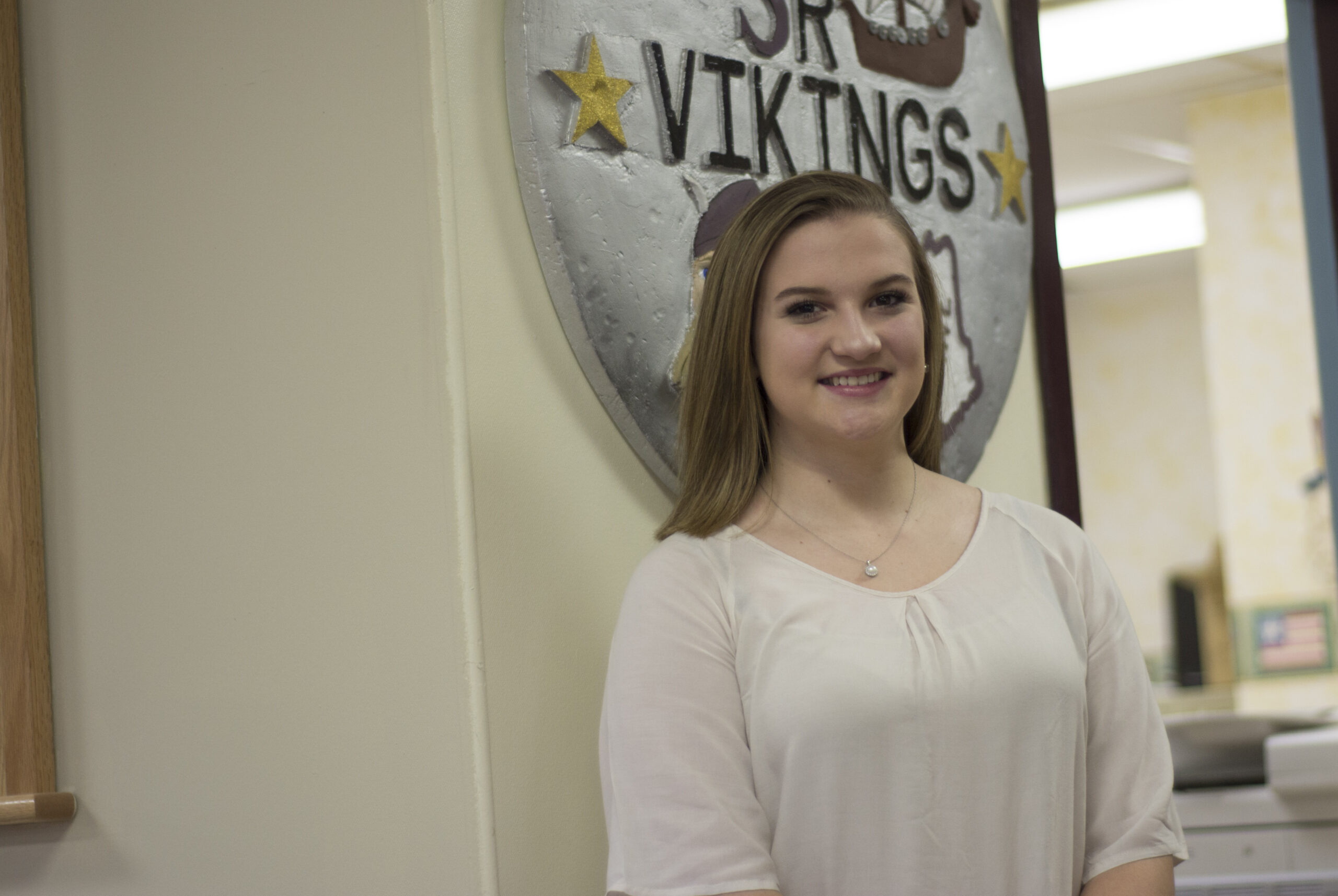
CARIBOU, Maine — Caribou High School senior Riley McNeal recently returned from a one week, all expenses paid trip to Arizona where she attended the “ME to WE” camp, which encourages a lifelong dedication to community service.
CHS Alumnus Christopher Pelletier, who now works for Microsoft, sponsored the trip and reached out to the high school last year, offering to pay for one student to attend the camp. Guidance Counselor Mark Pinette decided to open up the opportunity to all CHS juniors, who he considered would be mature enough and able to bring back what they learned to share with other students this year as 12th graders. All juniors then were asked to write an essay on leadership and, after careful consideration, the school chose McNeal to attend.
“I would say Riley’s leadership ability in school makes her a natural fit,” said CHS Principal Travis Barnes. “She’s involved in a variety of activities here.”
Barnes added that any chance for a student to build leadership skills would benefit not only the school, but the students as well.
“She felt very empowered after leaving Arizona,” Barnes said. “She’s a senior now, so it was a great experience for her. Soon, she’ll be off to college on her own.”
McNeal said the camp covered many different topics, ranging from immigration to issues experienced by Native Americans in the area. The camp’s mission, according to McNeal, was for young participants to bring back this knowledge and determine how to apply it in their own communities.
While the experience as a whole clearly impacted McNeal, she said the most unforgettable aspect was a trip to a special courtroom called “Operation Streamline,” which is only active in border states. These courts specifically deal with immigrants who crossed the border illegally and handle multiple cases in a single session.
“I saw 82 people tried while I was there,” she said. “It’s like a sped up version of a court designed to keep the deportation flowing.”
The court brought in five immigrants at a time, and they would sit with lawyers and answer “yes” or “no” questions while a translator bridged the communication gap.
“I sat behind the translator,” McNeal said, “which was interesting because I’ve taken Spanish classes and could understand what was said.”
Out of the 82 tried when McNeal attended, all were found guilty.
“You’d see them line up to the mic and the judge would ask questions,” McNeal said, “and she would just read off ‘guilty, guilty, guilty.’”
Those tried were all given plea bargains in which the time they spent in a holding cell could count as their sentence, so they could be deported right away. This, however, only applied to first offenders. Second and third time offenders were given up to 185 days in an American jail before deportation.
She said that while immigration is constantly discussed on the national news, the experience of actually witnessing an assembly line speed court deport dozens of immigrants in minutes made it all seem “real.”
“It was really eye opening for me,” she said. “I cried; it was an emotional experience for all of us.”
Another memorable experience for McNeal was visiting the border fence.
“That was insane,” she said. “It’s 24 feet tall and the poles are probably six inches in diameter with two inches between each of them,” commenting that it was surreal to be able “to touch it and know that Mexico was literally right there.”
Now that she’s returned, McNeal said she has renewed motivation to make Caribou High School’s student council a more active organization, not only in the school but also the surrounding community.
“The only time student council really interacts with the school is during Winter Carnival and for some fundraising projects,” she said. “I’m hoping to change that. We’re getting a lot more people involved, because many students don’t know what we do, a lot aren’t involved and some don’t even know how to get involved.”
Looking back on the experience, McNeal said she gained a first-hand encounter with a variety of national issues.
“I knew about issues, like with the wall and deportation,” she said. “We hear people talking about it and see interviews, but just being there and seeing it in that space made it real.”
Barnes said that while he was thrilled for a student to have this opportunity, he is uncertain if it will happen again as McNeal’s trip was funded by an outside donor.
“This is definitely something we want,” said Barnes, “but we can’t afford the sheer expense of it all. We paid nothing for that opportunity, and Riley reaped all the benefits.”







